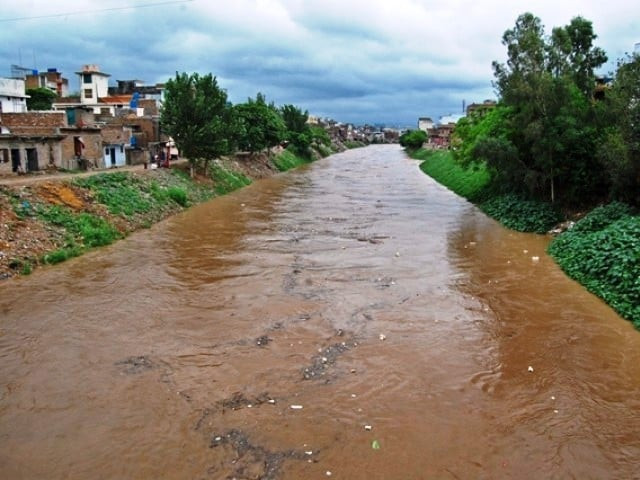Aeschylus, a Greek playwright widely regarded as the father of tragedy, once wrote,
“By polluting clear water with slime you will never find good drinking water.”
Case in point, Rawalpindi’s famous Nullah Leh. The Leh, probably the city’s most recognisable natural landmark, once had clear water flowing through it. In the early 1960’s, the West Indies cricket team with the great Charlie Griffith was touring Pakistan. During a side match in Pindi, a local fast bowler named Zia Burney asked Griffith how he kept fit. Griffith told him how he would go jogging on the beaches of Barbados every day so he stayed fit enough to bowl long spells at full pace. Burney, impressed by the similarity in their fitness regimen, replied, I also go jogging on the beach every day. A teammate-- my father-- quite interested in where the aforementioned beaches of Rawalpindi are located, asked him where this beach is? Burney replied,
“Leh de kinaray (on the banks of Leh)”.
Now, while the sides of the Leh may not be much of a beachfront, 50 years ago, the water was clear enough that one could be inspired by a morning jog alongside the stream. Today, the putrid smell alone leaves one gasping for air. The mucky water resembles toxic waste more than the source of all life. Just as well since the number of pollutants inside mean it’s probably more dangerous than most forms of toxic waste. The Leh, which starts near the I-sectors and makes its way through Punjab’s third largest city before pouring into the Soan River, absorbs the brunt of industrial and domestic waste generated by the twin cities, as most sanitation lines drain into the nullah instead of a water purification facility. To reiterate, the stream is literally full of Islamabad and Rawalpindi’s citizens’ filth.
The provincial government and city authorities seem unconcerned with such matters though, because bottled water doesn’t come from the Leh.
Unfortunately, flood water does, and 11 years ago, a major flood wreaked havoc on nearby areas. The water completely submerged houses along the Leh’s banks, killing 35 people and leaving cattle strewn around town, with live buffaloes being recovered from people’s rooftops.
While most of these houses were of questionable legality, the bigger problem is not their proximity to the Leh, but rather how little has been done to bring the real issue under control. The Rawalpindi Environment Improvement Project was conceived almost 10 years ago, but like most good things, a change of government meant the plan went on hiatus, much like Nawaz Sharif’s Motorway. Fortunately for Mr Sharif, he was able to return to power and complete the mega project. However, Musharraf’s return is much less likely, leaving one to only assume that the pending projects from that government will grow into white elephants.
One-upmanship, or the desire to win every time, hurts the people when it enters the political sphere. This is because some projects which constitute a win for the people and should be treated as a win for everyone, are considered by most politicians, Pakistani or otherwise, as a personal defeat if they are the brainchild of another political party. The success of one need not mean the failure of another. If one person finds a cure for cancer, it does not mean that thousands of others have failed.
But that is something that one can only recognise when willing to look at the bigger picture, rather than staying within the bubble of electoral politics.
And therein begins the story of each of Pakistan’s great tragedies.
Read more by Vaqas here, or follow him on Twitter @vasghar


COMMENTS
Comments are moderated and generally will be posted if they are on-topic and not abusive.
For more information, please see our Comments FAQ